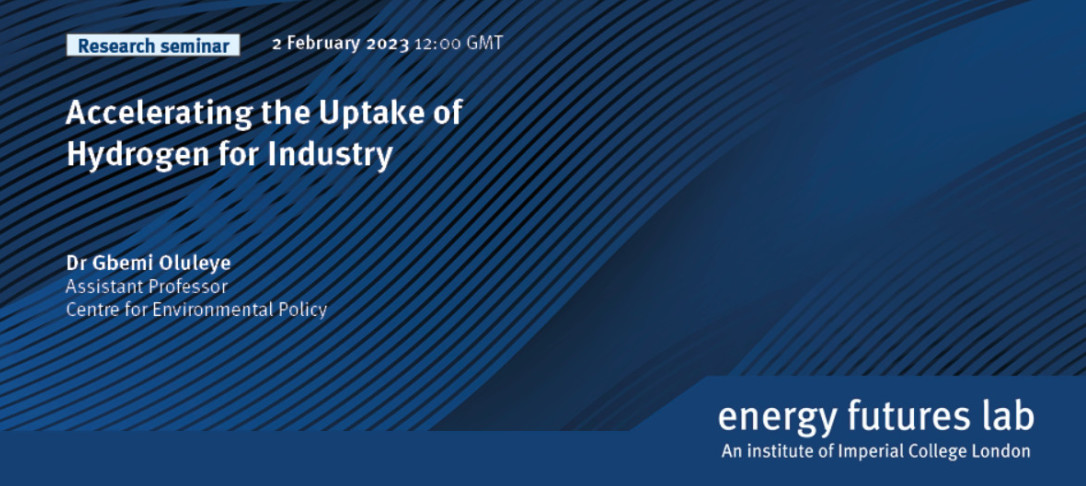
Accelerating the Uptake of Hydrogen for Industry
The industrial sector (manufacturing and construction) contributes 28% to Global greenhouse gas emissions with majority coming from energy-intensive processing. The sector also facilitates the transition to Net Zero by being at the core of developing low-carbon solutions to support decarbonisation of other sectors like power, buildings, agriculture, heating and transport. Therefore, achieving Net Zero Industry stimulates a Net Zero economy.
Hydrogen is an increasingly important piece of the Net Zero Industry puzzle, as it can be used as fuel for energy provision, and feedstock for industrial processes. As an alternative fuel, hydrogen provides low to very high temperature heat, and power. Hydrogen feedstock is also used in oil refining, chemical production, iron and steel production, petrochemicals, and ammonia production. Despite technological strides in hydrogen research, development, and demonstration, uptake in industry is still very low and could experience an innovation valley of death without adequate business-driven, and policy-driven interventions. These interventions are required to accelerate uptake by catalysing cost competitiveness between hydrogen and fossil-based fuels.
In this talk, two novel concepts: (1) market potential assessment and (2) market penetration optimisation would be introduced and applied to analyse hydrogen adoption for industry. These concepts quantify the impact of interventions in reducing cost and generating sufficient demand to trigger further cost reduction until an alternative fuel becomes cost-competitive or the need for interventions reduce or a target uptake is achieved. The concepts will be applied to real world case studies for hydrogen use as fuel and feedstock in the UK and global industry to demonstrate how to accelerate adoption.
Biography:
Dr Gbemi Oluleye is an assistant professor at the Centre for Environmental Policy, and a member of the Sargent Centre for Process Systems Engineering Imperial College London. She leads a research group on Modelling for the Adoption of Alternative Technological Systems (MAATS Lab). ATS are alternative fuels and technologies required to decarbonise manufacturing and construction. Gbemi’ s research and practise synthesises cost-effective adoption pathways for ATS from interventions driven by innovations in technologies, business models and policy. She has a multidisciplinary research experience and expertise at the interface of Technology, Policy, and Economics, and over 10 years combined experience in industry (design, manufacturing, and consulting), and academia.
About Energy Futures Lab
Energy Futures Lab is one of seven Global Institutes at Imperial College London. The institute was established to address global energy challenges by identifying and leading new opportunities to serve industry, government and society at large through high quality research, evidence and advocacy for positive change. The institute aims to promote energy innovation and advance systemic solutions for a sustainable energy future by bringing together the science, engineering and policy expertise at Imperial and fostering collaboration with a wide variety of external partners.